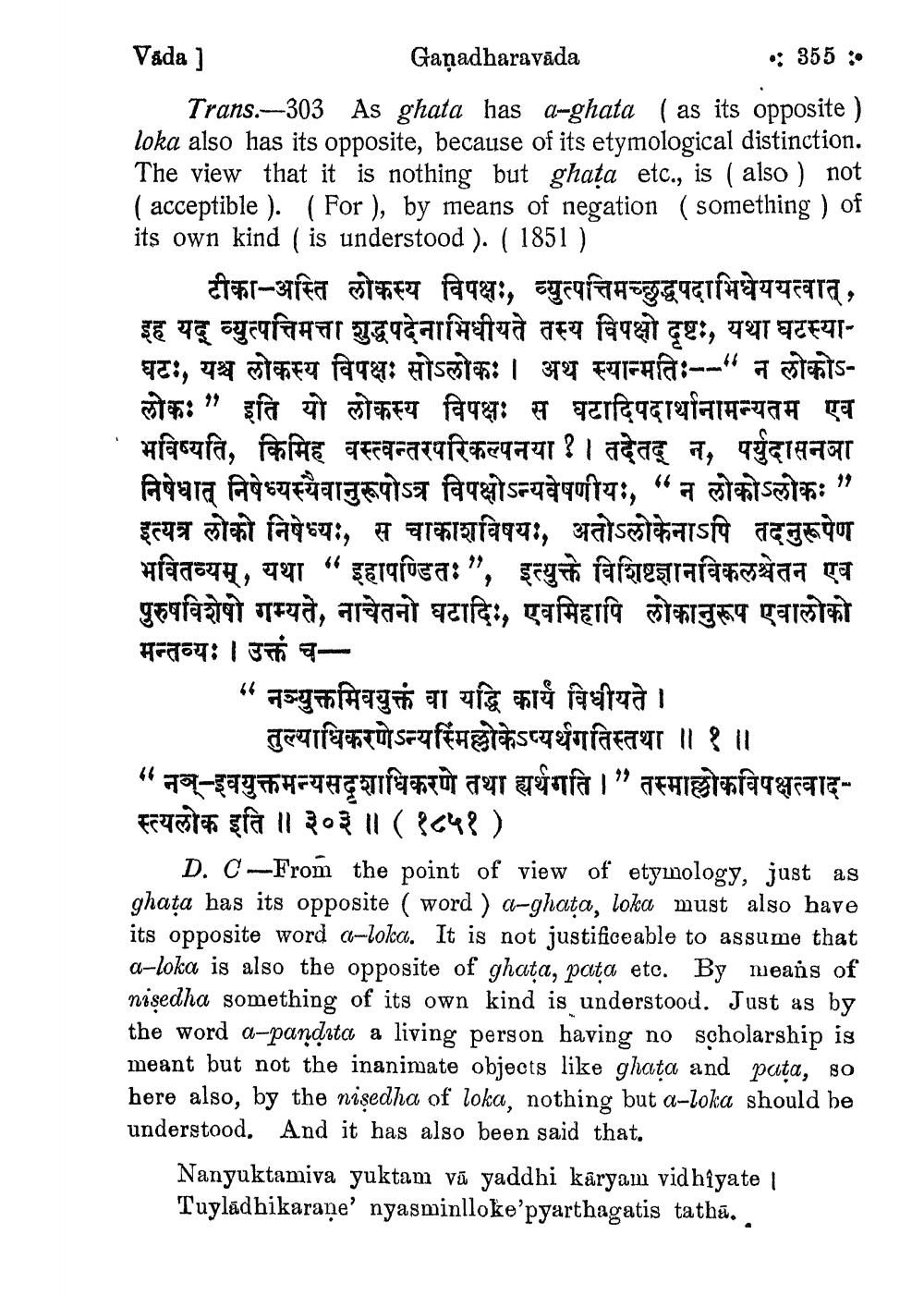________________
Vada ] Gañadharavāda
.: 355:. ___ Trans.-303 As ghata has a-ghata ( as its opposite ) loka also has its opposite, because of its etymological distinction. The view that it is nothing but ghata etc., is (also ) not ( acceptible ). ( For ), by means of negation ( something ) of its own kind ( is understood ). ( 1851 )
टीका-अस्ति लोकस्य विपक्षः, व्युत्पत्तिमच्छुद्धपदाभिधेययत्वात् , इह यद् व्युत्पत्तिमत्ता शुद्धपदेनाभिधीयते तस्य विपक्षी दृष्टः, यथा घटस्याघटः, यश्च लोकस्य विपक्षः सोऽलोकः। अथ स्यान्मति:--" न लोकोऽलोकः" इति यो लोकस्य विपक्षः स घटादिपदार्थानामन्यतम एव भविष्यति, किमिह वस्त्वन्तरपरिकल्पनया ? । तदेतद् न, पर्युदासनमा निषेधात् निषेध्यस्यैवानुरूपोऽत्र विपक्षोऽन्यवेषणीयः, “न लोकोऽलोकः" इत्यत्र लोको निषेध्यः, स चाकाशविषयः, अतोऽलोकेनाऽपि तदनुरूपेण भवितव्यम् , यथा " इहापण्डितः", इत्युक्ते विशिष्टज्ञानविकलश्चेतन एव पुरुषविशेषो गम्यते, नाचेतनो घटादिः, एवमिहापि लोकानुरूप एवालोको मन्तव्यः । उक्तं च
" नज्युक्तमिवयुक्तं वा यद्धि कार्य विधीयते ।
__ तुल्याधिकरणेऽन्यस्मिल्लोकेऽप्यर्थगतिस्तथा ॥१॥ " नब्-इवयुक्तमन्यसदृशाधिकरणे तथा ह्यर्थगति ।" तस्माल्लोकविपक्षत्वादस्त्यलोक इति ॥ ३०३ ॥ (१८५१)
D. C-From the point of view of etymology, just as ghata has its opposite ( word ) c-ghata, loka must also have its opposite word c-loka. It is not justifice able to assume that a-loka is also the opposite of ghata, pata etc. By means of nişedha something of its own kind is understood. Just as by the word a-pandrta a living person having no scholarship is meant but not the inanimate objects like ghata and puta, so here also, by the nisedha of loka, nothing but a-loka should be understood. And it has also been said that.
Nanyuktamiva yuktam vā yaddhi karyam vid hîyate | Tuyladhikarane' nyasminlloke'pyarthagatis tatha.




